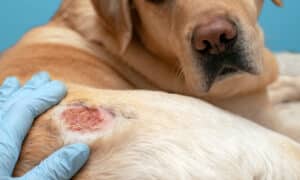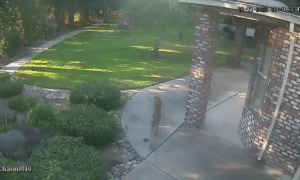“This post contains affiliate links, and I will be compensated if you make a purchase after clicking on my links.”
Like it or not, aluminum is one of the most widely-used metals in the world. But did you know that it is also one of the most harmful? As it appears in nature, aluminum is not a metal. It is so chemically reactive that it is mostly found in the form of various aluminum oxides. These oxides must first be broken down in smelters into the raw aluminum, and then processed into consumer products. These products include kitchenware, foil, construction materials, health products, and even cooking ingredients and additives.
Aluminum is toxic and dangerous because it does not occur naturally inside our bodies, and that includes animals as well. So what happens when living things use and/or consume these products made of or with aluminum? Over time, the aluminum accumulates within our body organs, and can cause some serious health problems. Examples are slowing down the growth of infants and children, and either causing or aggravating various diseases and allergies in animals and people.
The aluminum that is ingested usually affects the part of the brain that controls our growth, such as the pituitary gland and other parts of the reproductive system. Simply put, it can affect a person’s growth and development, usually in the mental aspect, as apparently the aluminum slowly eats away some tissues of the brain, when found in higher concentrations.
For our dogs, we also need to watch for their possible contact with aluminum. The most common source for them is their food and other basic needs like water and medicine. Almost everything we use in this planet contains trace amounts of aluminum, because it is one of the most abundant elements on Earth. With this in mind, here are some tips on keeping your dog healthy and as aluminum-free as possible:
- Check your dog’s food. It is important that we know what containers we use to prepare their food, as some utensils and kitchenware are aluminum. Some food such as potatoes, cheese and other dairy products may contain large amounts of aluminum in them, especially if they have such food additives. But don’t panic — this is not a major concern since only a small part of aluminum can be absorbed through digestion.
- Check the water sources. Acid rain brings about an increase in the aluminum content for various water sources, which you and your dog might drink from. Always remember to drink only from clean, purified, and safe drinking sources.
- If possible, live in an area with less pollution and urbanization. There is usually more aluminum contamination in urban areas than in quiet, rural areas due to industrialization.
- Know the vaccines containing aluminum. For dogs, some vaccines containing aluminum are Rabies, Lyme, and Leptospirosis. For humans, there are the vaccines for Anti-Tetanus, Hepatitis B, Anthrax, and Rabies. Doctors and veterinarians alike should know how aluminum-sensitive the patient is, to avoid unwanted symptoms. If we want our dog to avoid too much exposure from aluminum, then we can choose not to have it vaccinated, if it is not too important.
Pregnant dogs are particularly sensitive, as aluminum intake can greatly affect their fetuses’ condition. You may want to be more attentive to a pregnant dog’s intakes.
As final words, it is impossible to be 100% aluminum-free, since aluminum is the most abundant metal in the earth’s crust. But by taking simple precautions, we can always reduce the intake of the element and minimize our and our dog’s levels.
Feel free to share this with other dog owners below.


















Melody
says:Aluminum info for pups and peeps